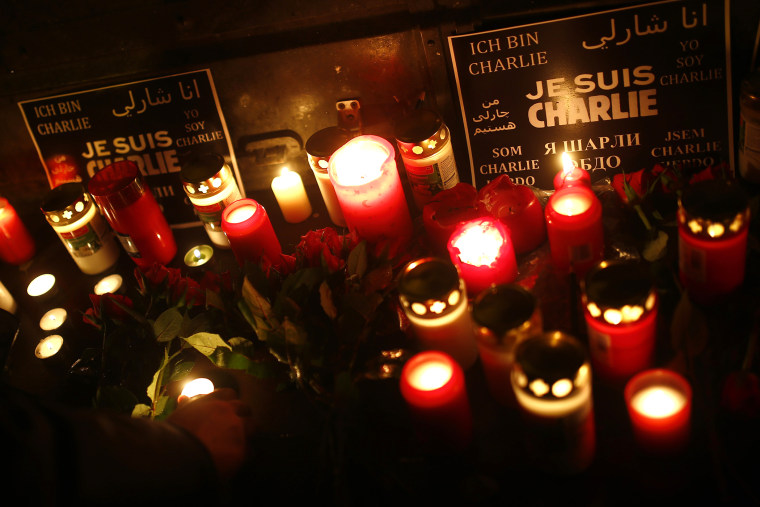After last week’s terror attacks in Paris, European leaders invoked the spirit of unity. Barely a week later, it has become painfully evident that the continent is deeply divided.
In France, the far-right is already exploiting the attacks to incite hatred against immigrants and minorities. Over the last days, there have been a record number of attacks on Muslims. At the same time, the reaction to last week’s attack on a kosher supermarket in Paris has been muted in some quarters. Dieudonné -- a controversial comedian with a huge following -- even perverted #JeSuisCharlie, the viral expression of solidarity with the journalists and cartoonists killed last week, into “Je suis Charlie Coulibaly,” an expression of solidarity with the gunman who killed four Jews.
In other European countries, tensions are less high, but divisions just as deep. Yesterday, in Dresden, the organizers of a weekly march that purports to defend Western civilization against the threat posed by Muslim immigrants attracted a record number of attendees. But so did an even bigger series of counter-protests across Germany.
"To exclude, marginalize or persecute ordinary Muslims is to succumb to the very intolerance we claim to denounce."'
Even in the United States, the unanimous recognition that the attackers were enemies of free speech quickly gave way to a contentious debate about just what that value actually demands of us in practice. Should we embrace Charlie Hebdo’s irreverence—or condemn it as racist? Should The New York Times reprint the offending cartoons in a show of solidarity—or would that only serve to fan tensions?
The predictable result of these disagreements has been the creation of a series of false dichotomies. On television screens and newsfeeds, it is starting to look as though we could only ever recognize one moral truth, or condemn one form of evil, at a time.
To overcome these false dichotomies, we need the moral imagination to defend our most fundamental value—the hope of constructing a society in which everyone is free to live in accordance with their own beliefs so long as they agree to extend the same freedom to their fellow citizens—against all its enemies, whatever their political color or creed.
So here are a few truths that are perfectly compatible—even mutually reinforcing—yet have, over the last several days, come to seem contradictory in the minds of many.
Islamic extremism is a vile ideology. Its refusal to tolerate people whose moral or religious beliefs err from the “right path” make it a serious threat. The best strategy to combat ISIS and al Qaeda may be in question, but the urgent need to do so is not. For the same reasons, we must preserve the liberty of all our citizens to live and worship as they please. To exclude, marginalize or persecute ordinary Muslims is to succumb to the very intolerance we claim to denounce.
Europe’s Muslims suffer from serious discrimination. Far-right politicians point to the deeds of a twisted few to tarnish the image of the vast majority. If we are to live together peacefully, we must not allow them to shape the European conceptualization of Islam. For the same reasons, we must not flinch away from recognizing and condemning hatred or prejudice when it emanates from minority groups, rather than being directed against them. As last week’s killings remind us, the violent anti-Semitism that has flourished among a small minority of Europe’s Muslims is a real threat to our values.
The state cannot be trusted to decide which expressions of free speech to tolerate, and which to censor. We must defend the liberty of cartoonists, like those at Charlie Hebdo, to offend and even to blaspheme, just as we must defend the liberty of vile comedians, like Dieudonné, to sow their poison. For the same reasons, the state cannot be trusted to decide which expressions of religiosity to tolerate, and which to censor. French laws banning headscarves from public schools, and full-face coverings from public streets, do not serve to defend the supposedly universal values of the French Republic; they serve to exclude and to discriminate.
In the wake of the Paris attacks, it is tempting to pride ourselves in our determination to defend the values we hold dear, or in our willingness to show solidarity with those who lost their lives. But having the courage of our convictions is the easy part. What’s more difficult, and more important, is to retain clarity about what those convictions actually are.
Yascha Mounk is a Fellow at the New America Foundation and the author of "Stranger in My Own Country: A Jewish Family in Modern Germany."
